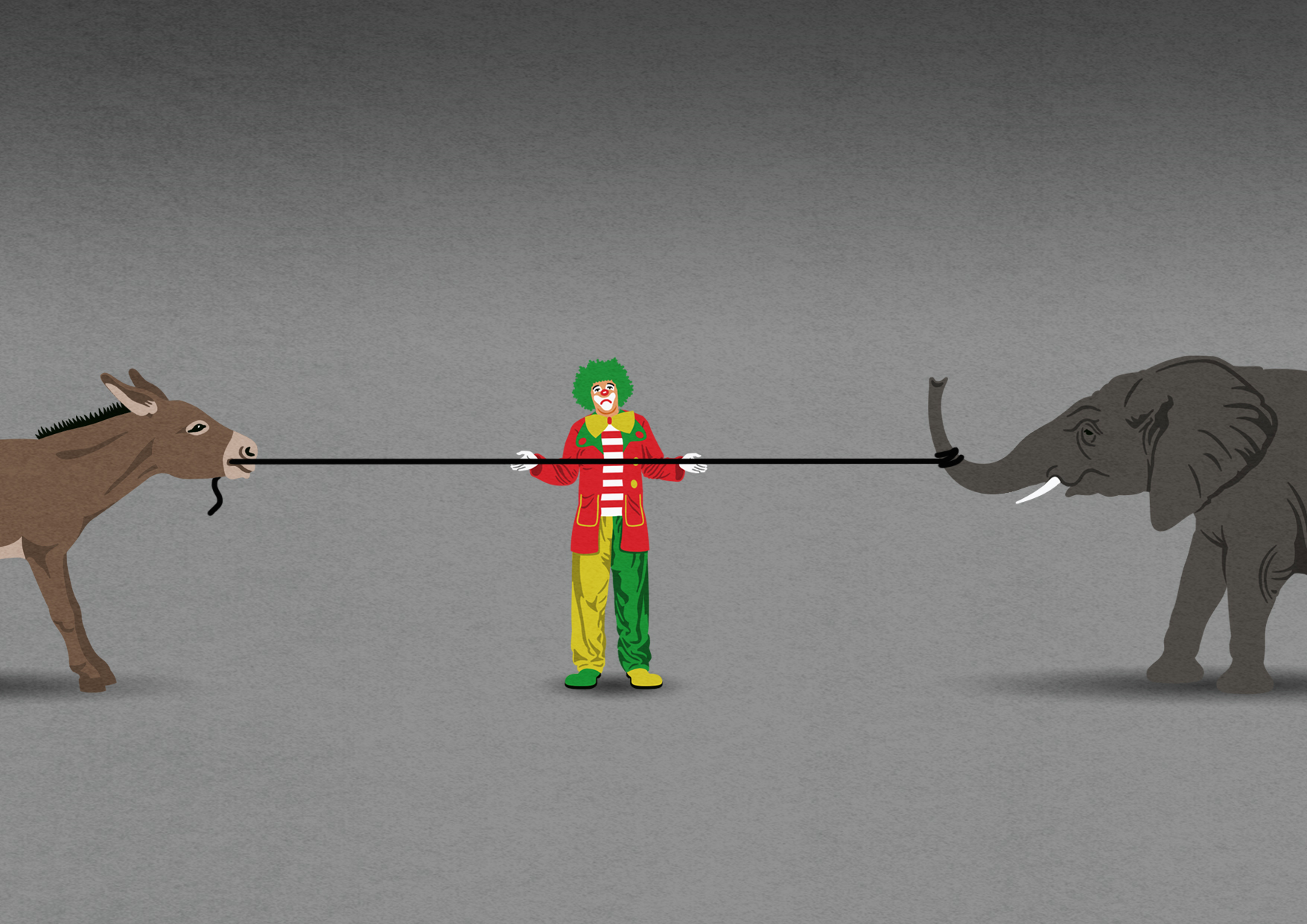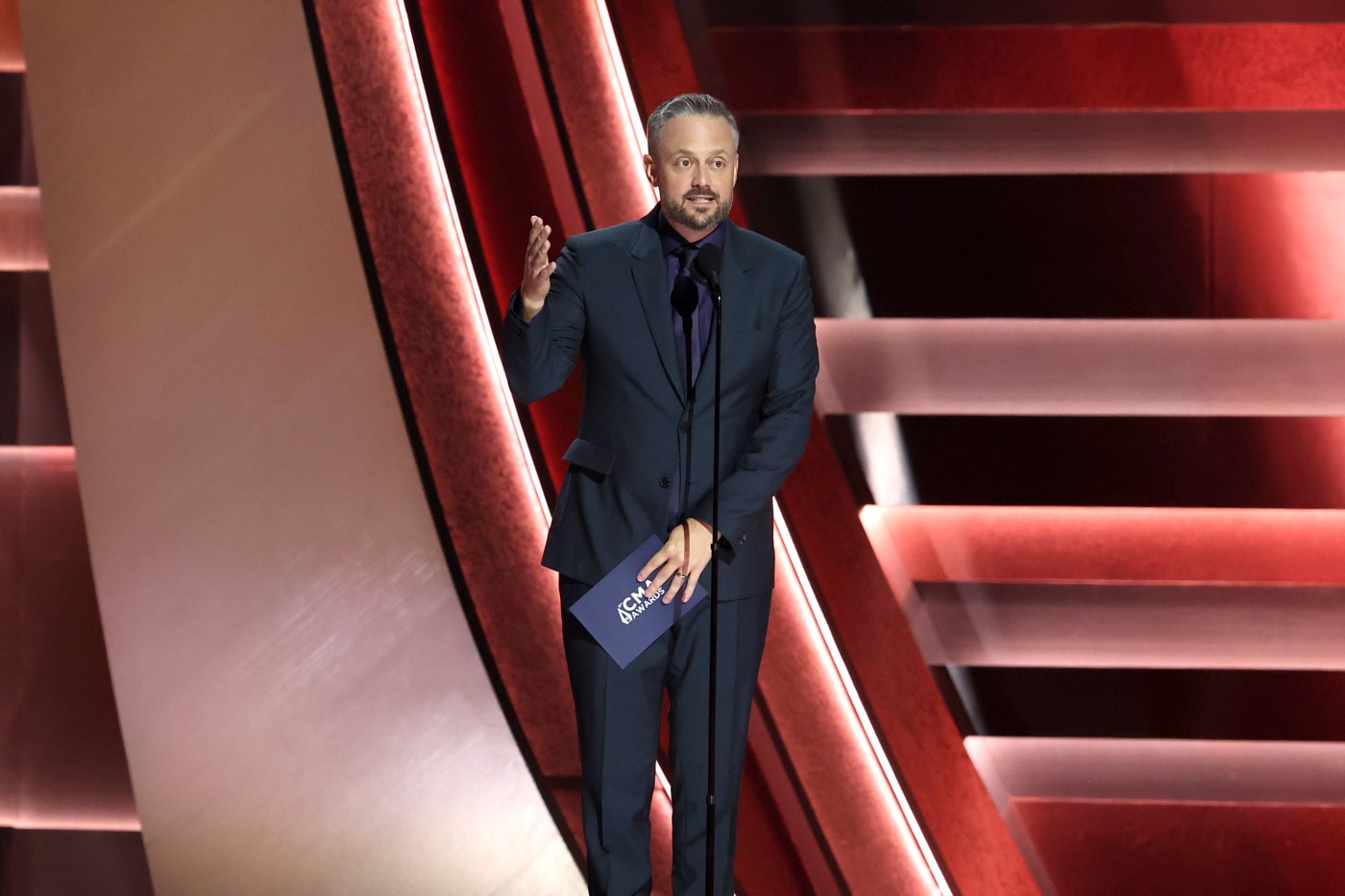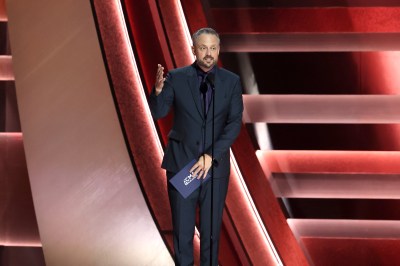FARGO, North Dakota—They’ve got the woodchipper from the movie here. That’s one thing to know about Fargo.
Very little of the eponymous Coen brothers film was shot here in Fargo, and so there aren’t a lot of filming locations to see or anything like that. At the Fargo-Moorhead Convention & Visitors Bureau, they have a little display with some copies of the script and Fargo memorabilia, including the infamous woodchipper. But then again, you don’t really need that stuff: North Dakota remains distinctly itself.
There are plenty of Marge Gunderson accents to be heard. There is the usual, familiar feel of a small city in the Upper Midwest. And if the thick coat of Norski Lutheran culture is starting to be worn through in places, there’s still plenty of weirdness out there to enjoy in the wilds of leg-tattoo America, even if life in these United States increasingly feels like being trapped inside a TGI Fridays where there’s an angry and complicated family dispute playing out in the next booth over.
It’s perfectly nice. Perfectly unobjectionable. Inoffensive. It is, in sum, Nate Bargatze country.
Welcome to the Fargodome.
Which, while we’re on the subject, isn’t a dome per se, but it is in Fargo. It is one of those reconfigurable modern arenas, with a capacity of about 25,000 for concerts. It’s set up for about half that tonight, and comedian Julian McCullough, who is serving as the evening’s host, puts the audience size at 12,000. He berates those arriving to the show late, telling them, “There’s literally nothing between your house and the arena.” Fargo, he muses, is so flat that you can look behind you and see where you went wrong in life nine years ago. It’s a good line, as is his observation—not entirely justified these days—that racism isn’t much of a problem in Fargo because the locals “don’t really get a shot at it.”
And that kind of easygoing racial humor is about as close to political as the evening gets. It’s a good Fargo joke, except for the fact that Fargo is actually full of black people—it is home to a significant and growing population of African immigrants, many of them Liberians relocating from the East Coast.
Bargatze, who sold 330,000 tickets and earned $20.6 million in 2023, is working his way through the Midwest, but he has reached the stage in his career where he is no longer performing at clubs with two-drink minimums or even at big theaters—he is a stadium-filling attraction these days. He sometimes seems like an atavistic throwback to another time: “I’m from the 1900s,” he explains in his trademark dead-serious tone. A performer with a gift for putting asses in stadium seats with at least one foot firmly planted in the late 20th century: Nate Bargatze is the Van Halen of comedians.

That’s his thing: Although he does have a long riff on how hard it must be to be the secretary of transportation, he doesn’t really talk about politics, and he sure as heck doesn’t want to talk about politics with me. (His publicists very politely declined an interview.) He doesn’t do controversy. His set is famously clean, and innocence is his shtick: The role he plays is that of a regular guy who doesn’t understand the excesses of the modern world or how to cope with its complexities. His show is a warm bath, a boneless chicken breast, a bowl of vanilla ice cream on a summer day.
And the thing is, they sell a ton of vanilla ice cream.
Bargatze’s 2023 Amazon Prime special, Hello World, had 2.9 million viewers in its first 28 days, a record for a comedy special on that platform. He has broken attendance records at arenas. “Nate Bargatze” the stage character is a bumbling suburban dad who talks about life on the cul-de-sac and ordering two separate fast-food meals (McDonald’s and Sonic) from DoorDash at the same time. Nate Bargatze the entertainer and businessman uses a private jet to pop over to Tuscaloosa to make picks on ESPN’s College GameDay and wears what appears to be a $50,000 watch. Assuming he has a stylist, he has a really good one, who dresses him in low-key designer pieces that don’t make him look like a man wearing expensive and fashionable clothes. His marketing department loves to repeat a line from a profile in a magazine I’ve never heard of, declaring him “the nicest guy in stand-up comedy.”
It helps, of course, that he is very, very good at this.
McCullough, the evening’s host, offers a theory of Fargo that is also a theory of Nate Bargatze. Noting that the audience was pretty sedate—amused and enjoying themselves, but far from uproarious—he observed that comedy is, fundamentally, about laughing at people, something the decent people of the Upper Midwest are uncomfortable with. “Oh, we’d rather help,” he says, putting on a pretty good local accent. “I’ll take your gentle laughter as the sound of very good people having fun.”
The performer Bargatze reminds me of isn’t Richard Pryor or Robin Williams or some other famous comedian—it is Taylor Swift. I don’t hate Bargatze’s act, but it isn’t really my thing, either. And that’s fine—it’s a big world, and a healthy market has lots of different sellers selling lots of different products to lots of different buyers. Unlike a few other pop singers whose names I know for some reason even though their music is entirely unknown to me (e.g., Dua Lipa), I can identify a couple of Taylor Swift songs—and I kind of liked her in the much-maligned Cats film. She isn’t my particular cup of 90°C Earl Grey, but there’s no question that Taylor Swift is really good at what she does, both musically and as a business enterprise.
Now, there’s more musical knowledge in Jay Nordlinger’s fingernail clippings than in my 7 ⅝-sized skull, but I have pretty wide and varied tastes (I can give you an earful about why I Against I is the best rock album ever made), and I know a little bit (I could still play the opening bars of “Satch Boogie” pretty decently the last time I picked up a guitar). There’s a reason Taylor Swift is Taylor Swift and I’m not and—more to the point—a hundred million other reasonably pretty young women with good voices and some musical ability are not. And it ain’t just marketing. I was never much of a basketball fan, but I remember how thrilling it was to watch Michael Jordan play—excellence is its own vindication, and there is something joyful in watching someone do something that nobody in the world does better.
About that: Some of my hoops-scholar friends may quibble with this or that aspect of Jordan’s game, but there is one thing about him that is ungainsayable: At the top of his game, Michael Jordan was, without a doubt, the greatest shoe salesman who ever lived. And that’s worth thinking about in the context of Nate Bargatze, too: Unlike Taylor Swift, who eventually caved to the campaign to bully her into becoming a half-assed political activist, Jordan mostly kept mum about public affairs during his career. His Democratic sympathies were not a secret, but neither was his business sense: “Republicans buy sneakers, too,” he famously explained.

Maybe Nate Bargatze tells clean jokes and avoids politics and controversial issues because that’s who he is. Maybe it is a canny business decision: I once met a former Wall Street type who, though he was himself pretty far from a life of milk and cookies, liked to invest in G-rated movies—they may never win an Oscar, he argued, but they never lose money. The character “Nate Bargatze,” a variation on the feckless suburban dad of a million sitcoms, may be dumb, but the Nate Bargatze who plays “Nate Bargatze” isn’t dumb. There’s a reason he was able to pack a statistically significant share of the population of Greater Fargo into the not-inexpensive seats of a sports stadium on a Sunday night. There are a lot of funny guys out there who can go 50 minutes without saying words you don’t want your kids to hear. But they aren’t stacking them up to the rafters in the Fargodome.
“[Bargatze’s] show is a warm bath, a boneless chicken breast, a bowl of vanilla ice cream on a summer day.”
“The world is serious,” the guy who isn’t doing any interviews said in a recent interview with Billboard. “There’s plenty of people and information. You can go get whatever you want to go get. You do not need me to also add to that. What I believe I need to do is be entertainment that you can go to as an entire family.” G-rated movies don’t often lose money, and, in 2024, Nate Bargatze is averaging just under $800,000 a night in ticket sales.
Fargo is a nice little city, but it is not exactly an obviously thriving one. There are a lot of commercial vacancies in the city center, miles of very rundown-looking residential blocks, that sort of thing. It’s not a tale of despair, by any means: Fargo typically has relatively low unemployment, it has a big state university to buoy its economy and social life, and you’ll even find corporate outposts from a few surprising firms, including Microsoft, which established a foothold in Fargo when it acquired Doug Burgum’s Great Plains Software in 2001. It is growing.
But like a lot of cities of this kind, Fargo’s biggest employers are either government or government-adjacent: the university, the public school system, the VA and other healthcare providers, etc. Marvin Windows, the largest local manufacturer, employs some 1,800 workers, amounting to 2.4 percent of the local jobs. It once was an agricultural hub, but as farming has declined in relative economic importance, many cities such as Fargo have struggled to find a real economic raison d’être: There’s a big hospital system there because there are people working there, and the people working there—one in eight of them—work for the big hospital system.
The loopiness of California and the urban-hellscape aspects of New York lend themselves to a particular kind of pointed comedy, including political comedy of a speaking-jokes-to-power variety. (Residents of most cities have some kind of civic pride; New Yorkers have Stockholm Syndrome.) But out there in the always-struggling outposts on the Scandi-Lutheran prairie, they prefer not to acknowledge their anxiety, much less to wallow in it for entertainment.
The election will come, and what’s going to happen will happen, and the economy is going to do what it is going to do, and it seems that the good people of Fargo don’t particularly want to hear about it on a Sunday night in the closing days of summer. Winters are long and cold up here. Nate Bargatze knew what he was doing when he gave his tour its name—responding to the demands of the marketplace:
“Be Funny.”







Please note that we at The Dispatch hold ourselves, our work, and our commenters to a higher standard than other places on the internet. We welcome comments that foster genuine debate or discussion—including comments critical of us or our work—but responses that include ad hominem attacks on fellow Dispatch members or are intended to stoke fear and anger may be moderated.
With your membership, you only have the ability to comment on The Morning Dispatch articles. Consider upgrading to join the conversation everywhere.